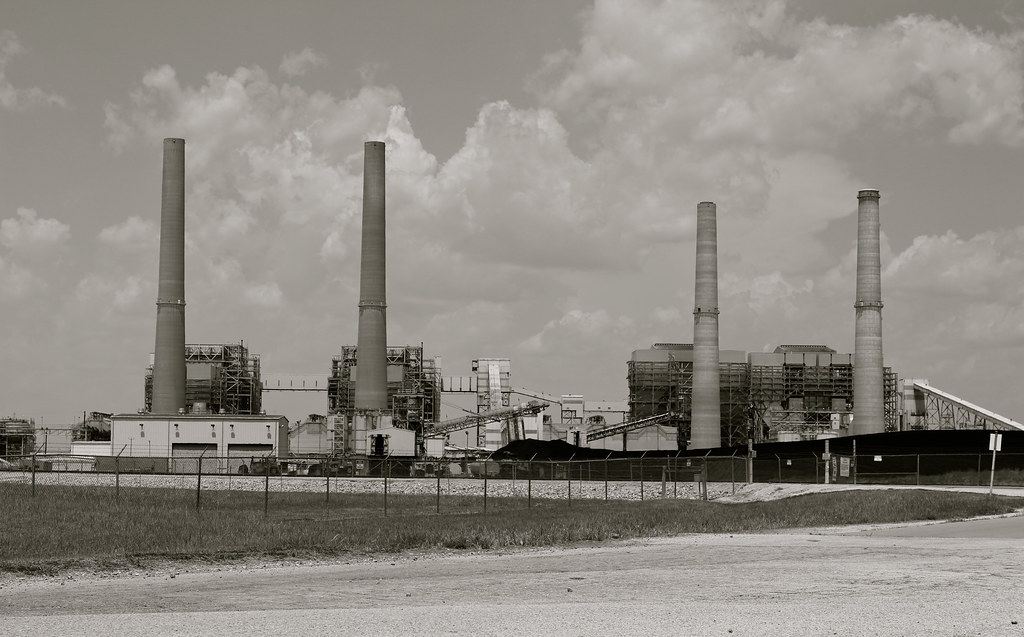The Tennessee Valley Authority, an independent agency of the federal government which acts as a public utility for over 10 million residents in and around Tennessee, announced in March that it would replace two aging coal-fired power plants with gas-powered plants. As the nation’s largest public utility company, the move goes against Biden’s goal to achieve a clean energy grid by 2035. TVA could be leading the charge for renewables, but its fossil fuel CEO Jeff Lyash, who comes out of fossil fuels, is instead choosing to lock in polluting gas for decades. This does not have to be the case.
As our Mekedas Belayneh explained in The New Republic, the independent agencies of the federal government do not have a fully free pass to implement any policy they wish. The Environmental Protection Agency (EPA) was granted a power in Section 309 of the Clean Air Act that allows the EPA administrator to refer any federal agency’s project to the White House Council on Environmental Quality (CEQ) if it decides the project’s environmental impact statement is insufficient. The issue could, if necessary, advance to the president’s desk for a final decision.
All executive agencies are technically mandated by the 1969 National Environmental Policy Act (NEPA) to consider and prioritize environmental and climate impacts in their projects. This means they have to complete either an environmental impact statement (EIS) or, for certain smaller projects, environmental assessments. Both are supposed to detail every way in which the potential project could impact the “quality of the human environment.”
Belayneh detailed how the Biden administration is under no obligation to allow the Trumpist-led United States Postal Service to go forward with its plan to purchase a gas-powered fleet of delivery vehicles rather than new electric, emission-free mail trucks, especially not when the EIS for the project was rife with error. The EPA could step in, formally refer the project to CEQ, which would then (in an alternate reality where Biden’s administration did what it said it wanted to do) put an immediate stop to the project and insist on a new proposal which could help the country decrease its deadly emissions.
But importantly, the USPS’ new delivery fleet is not the only project which would benefit heartily from CEQ’s interference. The EPA (with its referral power) should also turn its attention to the TVA.
The TVA’s draft environmental impact statement for the gas-powered plant projects, which was published last week, failed to adequately consider its renewable options. A TVA spokesperson said the utility had decided to go ahead with gas energy because it would be cheaper and more dependable than solar or other zero-emission energy sources. But new wind and solar plants provide cheaper energy than already-operating fossil fuel plants in the U.S., and renewables are just as reliable, if not often more dependable, sources of energy than fossil fuels.
To make matters worse, TVA has unlawfully begun the process of building a new gas plant. The Southern Environmental Law Center (SELC) obtained two contracts that showed TVA had already initiated agreements with energy company Kinder Morgan to build an entirely new pipeline for the plant. The company started the pre-filing process with the Federal Energy Regulatory Commission (FERC) in October of 2021. These actions (and the lack of any parallel moves to initiate a renewable plan) send a clear message that TVA is not genuinely considering the alternatives listed in their EIS.
The SELC is suing TVA for moving forward with the new gas plant without completing a full environmental review, which is a violation of NEPA. Currently, 16 states and several environment groups are suing the USPS for the same failure to abide by environmental review requirements. A dual strategy of lawsuits and an EPA using its allotted power is needed to halt these independent agencies’ reckless plans.
TVA’s plans are fully incompatible with the country’s emissions reduction goals: a Guardian report published this week was only the latest source to reiterate that the planned gas extraction projects in the U.S. would literally bring the world past irreversible and immeasurably damaging climate tipping points. It should be obvious that new gas plants coming online in 2026 and 2030 (a staggering $3.5 billion investment) will make it impossible for Biden’s goal of an energy grid free of emissions by 2035 to be achieved.
This decision is not particularly surprising, given the TVA is run by fossil fuel-friendly CEO Jeff Lyash, whose compensation was $9.8 million in 2021 and who gained decision-making power in November after the TVA board, which is also made up mostly of private-sector fossil fuel allies, voted to allow Lyash to have full discrepancy over the replacement plans. While the board of the TVA is made up of nine presidentially-nominated, Senate-confirmed members (who can also be fired by the president,) the CEO is simply hired by the board and does not report to the president.
In a functioning government, the president in power would direct their administration to make policy choices in line with their own stated agenda. Pretty simple. In this case, that would look like Biden’s EPA intervening in the TVA decision and pressuring the independent agency to invest in renewables. Just as in the USPS case, the EPA could refer the decision to the White House CEQ based on what is clearly a faulty environmental impact assessment from the TVA. Biden’s CEQ, which is tasked with coordinating the government’s environmental efforts and reducing the nation’s emissions, would undoubtedly (again, in a world where the governing party tried to achieve its own stated goals) insist that the TVA return with a new plan in line with the country’s emission reduction goals.
Image credit: CC BY 2.0 license W.A. Parish Power Plant, Thompson TX by roy.luck

